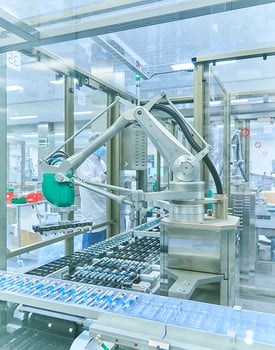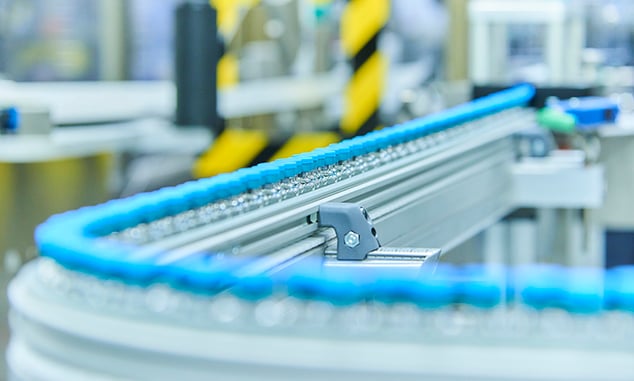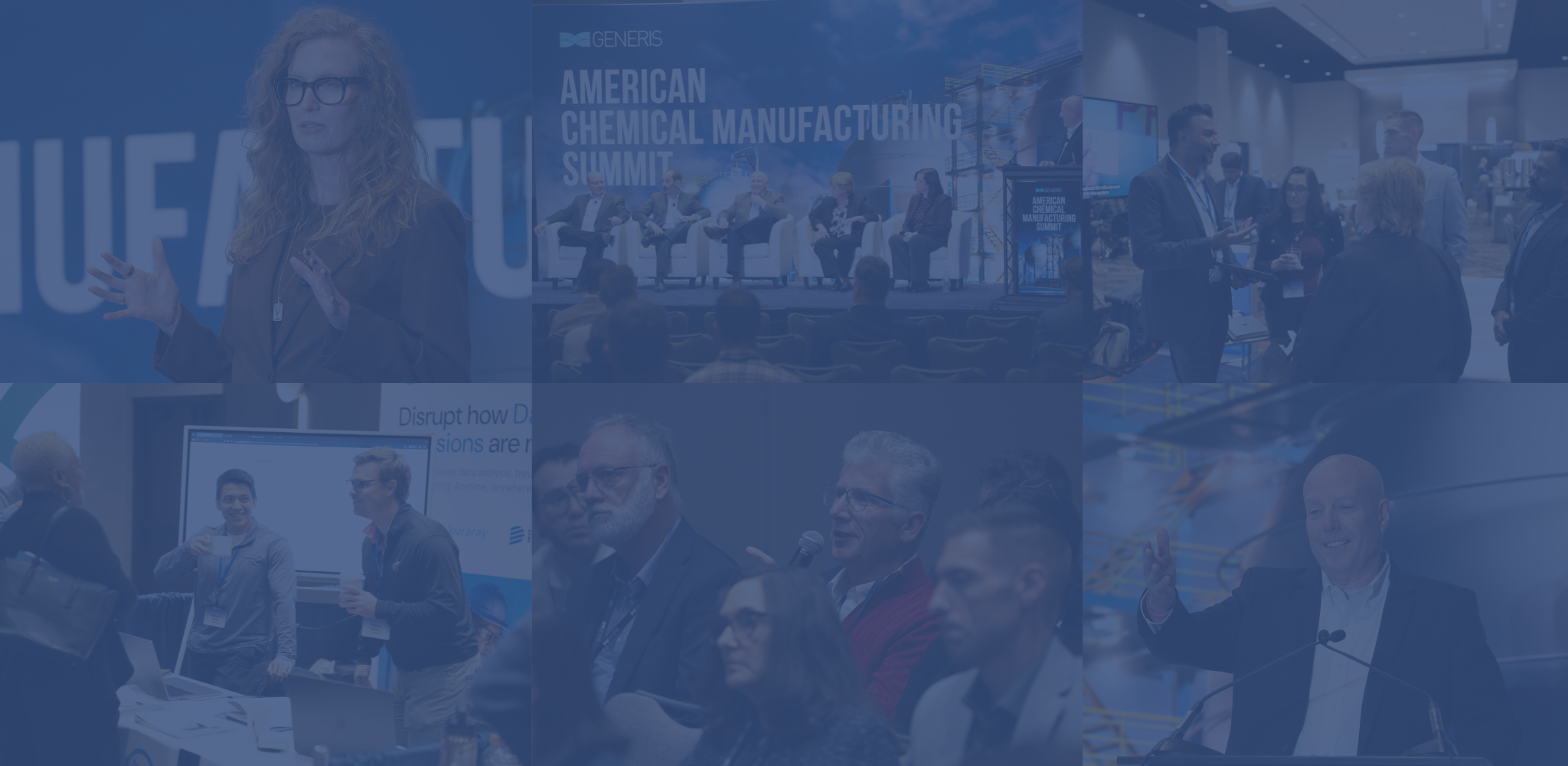Introduction
As the pharmaceutical industry accelerates its digital transformation, few leaders embody the fusion of manufacturing excellence and technology innovation as strongly as Lori Canzanese, Executive Director of Digital Manufacturing Operations at Merck. With over 32 years at the company, Lori has built her career at the intersection of information technology and manufacturing—driving automation, data analytics, and digital enablement across Merck’s global network.
In her current role, Lori oversees automation engineering and the digital footprint at all small molecule and packaging sites worldwide. She ensures that operations run seamlessly from an automation perspective, that the right people and digital capabilities are in place to support production, and that data-driven insights are empowering local teams across the network to perform at their best.
We had the opportunity to gain pre-summit insight from Lori ahead of her session at the American Pharma Manufacturing & Outsourcing Summit, taking place November 17–18, 2025, in Boston, MA, where she will share Merck’s journey toward advancing global digital manufacturing and operational excellence.
You’ve spent much of your career at the intersection of manufacturing and digital transformation. What originally drew you to this field, and what continues to motivate you?
What drew me to Merck—and what has kept me here for more than three decades—is our mission. In IT, you can choose to work in any industry, but I wanted to contribute to something that truly makes a difference in people’s lives. At Merck, our purpose is to save and improve lives around the world.
What continues to motivate me is the connection between technology and human impact. This is such an exciting time, not only for medical discovery but also for digital innovation. Being able to bridge those two worlds to help discover, manufacture, and deliver life-saving products to patients is what fuels my passion and keeps me inspired every day.
You’ve been with Merck through many years of transformation. What are some pivotal shifts that have shaped the company’s operational strategy?
Early in my career, IT and operational technology (OT) were seen as completely separate domains. One of the most significant transformations has been the convergence of those two worlds. With advancements in automation and data integration, we’ve seen tremendous progress through the creation of our Digital Merck Manufacturing Division, which brings IT and OT together under one cohesive vision. Now, instead of viewing automation and information systems as separate, we see them as an interconnected ecosystem—from the shop floor all the way through the value chain to the patient. That seamless flow of data and product enables us to manufacture with greater efficiency, consistency, and agility.
How do you measure success in digital manufacturing—is it about efficiency, innovation, workforce enablement, or something else?

All of those are key components—efficiency, innovation, and workforce empowerment—but ultimately, success means getting safe, effective products to the patients who need them. Digital tools help make that possible. Whether it’s automating real-time scheduling, using AI to assist in investigations, or applying advanced analytics to uncover root causes faster, these capabilities help us operate more efficiently and respond more intelligently. At the end of the day, we focus on what the patient values most—reliable access to high-quality medicines and vaccines—and we align our digital strategy to that goal.
Your session focuses on advancing global digital manufacturing. What excites you most about how digitalization is transforming the future of pharma operations?
What excites me most is that we now have capabilities that simply didn’t exist five years ago. For example, AI can now help us analyze years of data to assist in the identification of potential root causes and even generate first-draft reports—reducing investigation times by up to 80–90%. The human will always be in the loop, powered by these digital advancements. We’re seeing real-time data processing that alerts us to issues as products are being manufactured, giving us the opportunity to intervene before a problem escalates—potentially saving an entire batch of critical medicine. The innovation is happening across the value chain, from the shop floor and quality assurance to supply chain resiliency. It’s an incredibly exciting time to be driving digital transformation in pharma.
Merck is known for leading in manufacturing innovation. What are the biggest challenges when scaling digital systems across a global network?
One of the biggest challenges in our industry is scale. It’s one thing to have isolated successes—what I call “islands of impact”—but it’s another to enable true global adoption across every site in the network.
Merck has made significant progress through a multi-year digital transformation program that began in 2023, accelerating innovation across all manufacturing sites worldwide. This level of transformation requires strong sponsorship from the top—and we’re fortunate to have unwavering support from our leadership, including our Chairman and CEO, Rob Davis, our Executive Vice President and President, Merck Manufacturing Division, Sanat Chattopadhyay, and our Senior Vice President, Digital Merck Manufacturing, Besufekad (Besu) Alemayehu.
That said, scaling still requires thoughtful prioritization. We look at where digital capabilities can deliver the greatest value and focus our resources accordingly to ensure meaningful, sustainable impact.
What are you hoping to contribute to the broader conversation at the summit—and what are you most looking forward to learning from your peers?
I’m excited to share Merck’s digital transformation journey—what we’ve learned, where we’ve made progress, and where we continue to evolve. But I’m equally interested in learning from others, both within and outside of life sciences. There’s tremendous value in cross-industry collaboration. Other sectors are facing similar challenges, and by exchanging ideas, we can accelerate innovation across the entire pharmaceutical ecosystem. The summit provides a perfect forum for that exchange.
Finally, what are you most looking forward to at the American Pharma Manufacturing & Outsourcing Summit?
For me, it’s all about connection and collaboration. Events like this bring together the brightest minds in manufacturing, technology, and operations. I’m looking forward to forming new relationships, strengthening existing ones, and hearing how others are advancing digital manufacturing in their own organizations.
"We move farther and faster when we learn from one another, and the summit is the ideal environment to do exactly that."
Conclusion
Leaders like Lori Canzanese are at the forefront of redefining how innovation, automation, and data come together to serve a singular purpose—delivering life-saving medicines to patients faster, safer, and more efficiently.
Her insights remind us that technology alone doesn’t drive progress; it’s the people, culture, and shared purpose behind it that make lasting change possible. We look forward to hearing more from Lori at the American Pharma Manufacturing & Outsourcing Summit, November 17–18, 2025, in Boston, MA, as she joins industry peers to shape the future of global pharma manufacturing.
Register now: posummit.com
%20(1).png?width=773&height=112&name=Generis%20Logo%20full%20Colour%20(Large)%20(1).png)



.png)
-2.png)
